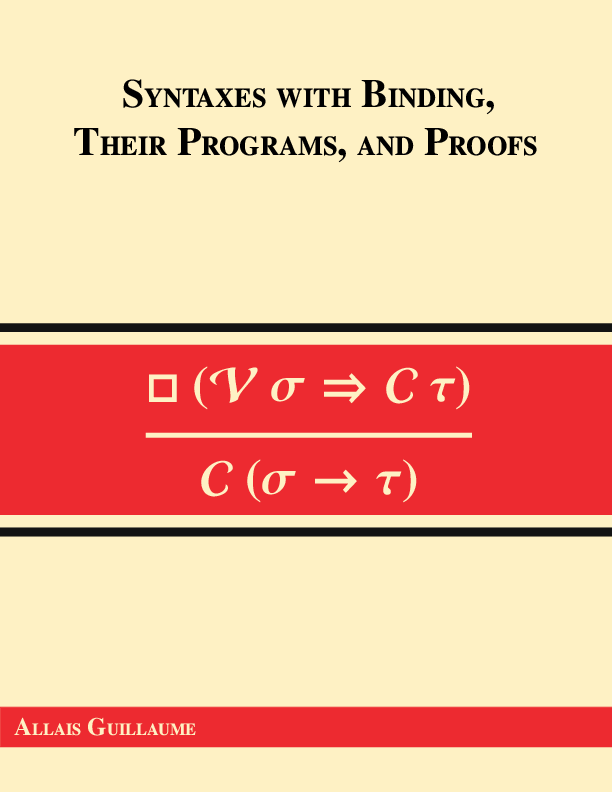Syntaxes with Binding, Their Programs, and Proofs

Abstract
Almost every programming language's syntax includes a notion of binder and corresponding bound occurrences, along with the accompanying notions of α-equivalence, capture-avoiding substitution, typing contexts, runtime environments, and so on.
In the past, implementing and reasoning about programming languages required careful handling to maintain the correct behaviour of bound variables. Modern programming languages include features that enable constraints like scope safety to be expressed in types. Nevertheless, the programmer is still forced to write the same boilerplate over again for each new implementation of a scope safe operation (e.g., renaming, substitution, desugaring, printing, etc.), and then again for correctness proofs.
In a case study focusing on the simply typed lambda calculus, we analyse these well scoped traversals and observe that they all share the same structure. This enables us to formulate them as instances of a more general program whose properties can be established generically. Alas, the programmer is still forced to duplicate this effort for every new language they implement.
This leads us to defining an expressive universe of syntaxes with binding and to demonstrate how to implement scope safe traversals once and for all by generic programming and how to derive properties of these traversals by generic proving. Our universe description, generic traversals and proofs, and our examples have all been formalised in Agda.
Defence
I successfully defended my PhD thesis on November 8th 2022 with Neel Krishnaswami as external examiner and Jules Hedges as internal one. My supervisor was Conor McBride.
Documents
You can find my thesis on this website or on Pure, and the fully formalised work directly on github.
Last update: 2026 01
